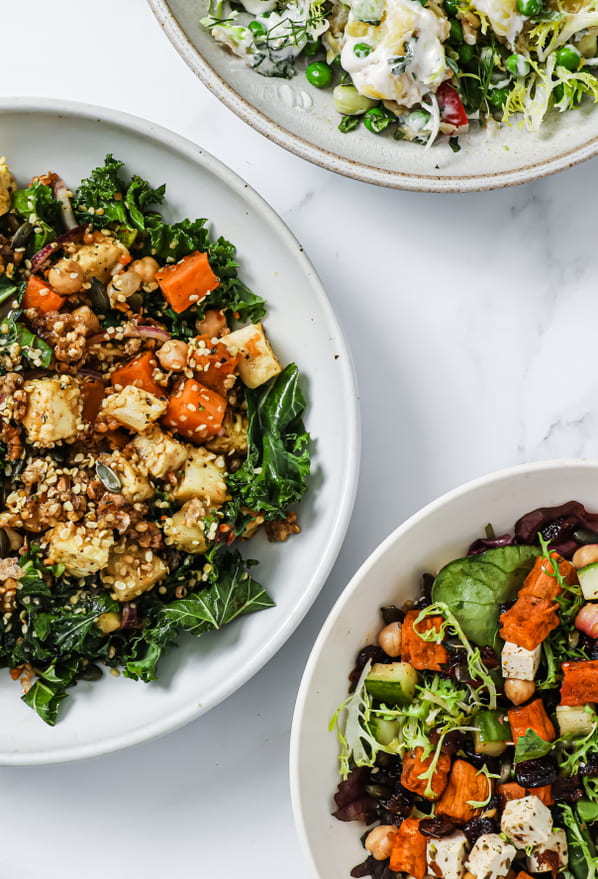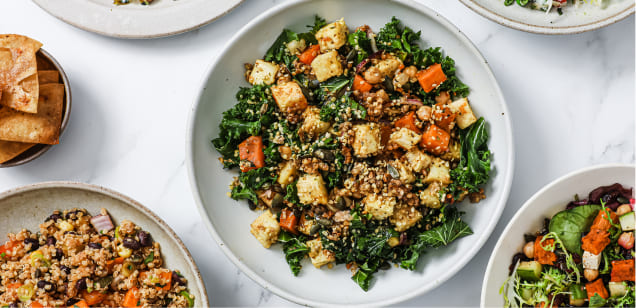Why everyone should think about Vitamin B12
Vitamin B12 is a really important nutrient for anyone following a plant-based diet to be aware of.
That’s because it’s the only vitamin that cannot be found in reliable quantities in plant foods, so must be taken either in supplement form or by eating foods that are fortified with vitamin B12.
While vitamin B12 isn’t made by plants, it isn’t produced by animals either – in fact it’s produced by micro-organisms. In the case of meat, these microorganisms live in the stomach of the animals, and produce B12 which is absorbed into the bloodstream and accumulates in the animals’ tissues. This is as long as the cattle graze on grass that has sufficient amounts of cobalt, a trace mineral that’s required by those bacteria for B12 production. Non grass-fed cattle (the vast majority), or those grazing in low cobalt soils, are fed with B12 fortified feed. That’s why over 80% of all B12 supplements produced worldwide are fed to cattle!
Getting B12 from supplements or fortified food seems like a much more direct, healthy, and sustainable way to take in this important vitamin. To make supplements, those same bacteria are simply cultured without the need for an animal as a host, and produce B12 as part of a fermentation process.
Vitamin B12 is important for everyone, not just those following a plant-based diet. In a study of nearly 3,000 adults, 39% had low B12 blood concentrations, whether they ate meat or not (1). In fact, in the same study, using supplements or fortified foods were the best way to protect against low B12 blood concentrations.
On top of this, many national health bodies, including the US national nutrition guidelines, recommend that everybody over the age of 50, regardless of diet choice, should consider using supplements or fortified foods to obtain B12, because absorption from animal-based foods declines as we age (2).
Vitamin B12 plays a variety of important roles, including DNA synthesis, red blood cell formation, and the formation of myelin – the protective sheath that surrounds nerve fibres. So, clinical signs of B12 deficiency can include fatigue and weakness due to low numbers of healthy red blood cells, as well as tingling, numbness, memory loss and confusion owing to nerve cell damage. If left unchecked over time, some of this neurological damage can be irreversible.
The reference nutrient intake for vitamin B12 in the UK is 1.5μg a day (3). However, some countries have set their reference intakes much higher: 2.4μg a day in the US, Canada, and Australia. If using supplements, the amount required goes up substantially, because B12 is best absorbed in small doses, so supplements should provide at least 10μg a day or 2000μg if taking once weekly.
At Holy, we make sure to use fortified foods within our meals, so that most people don’t have to worry about taking an additional supplement. Check out the breakdown of all the micronutrients, including B12, in our meals – you’ll see that we make sure the recommendations are met or exceeded most days!
References:
1. Tucker KL, Rich S, Rosenberg I, Jacques P, Dallal G, Wilson PW, Selhub J. Plasma vitamin B-12 concentrations relate to intake source in the Framingham Offspring study. Am J Clin Nutr. 2000;71(2):514-522.
2. https://ods.od.nih.gov/factsheets/VitaminB12-HealthProfessional/#en55
3. https://www.nutrition.org.uk/media/nmmewdug/nutrition-requirements.pdf



